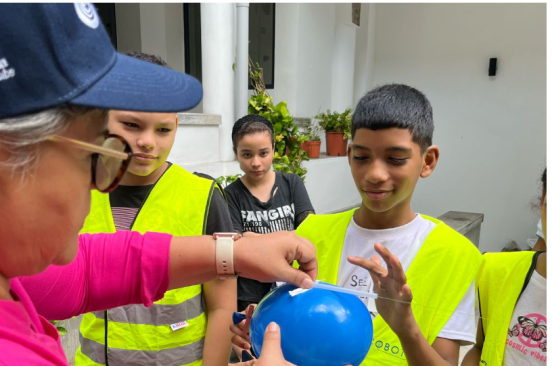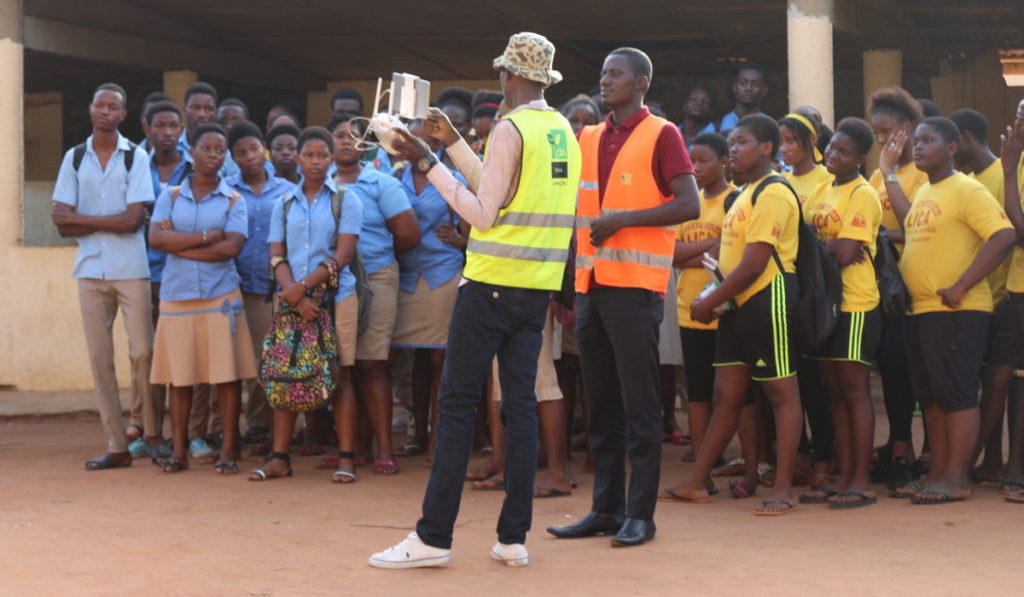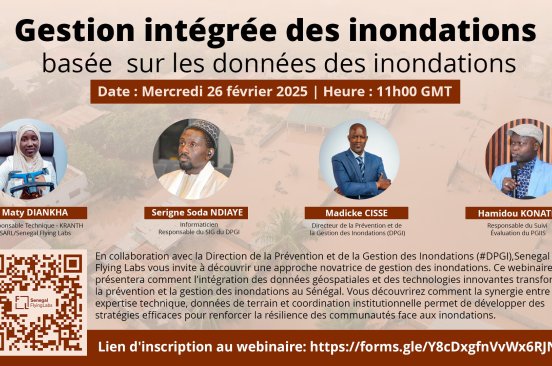
Using Drones to Engage Students in STEM Education
To spark student interest in STEM and the help increase the enrollment rate in STEM-related fields in university, Benin Flying Labs initiated a pilot project.
July 20th, 2019
For many students, science, technology, engineering, and mathematics (STEM) subjects are commonly considered the most difficult and challenging, yet STEM are the backbone of innovation that contribute to global progress. Economic and social development is intrinsically linked with the quality of STEM education and for developing countries to experience economic prosperity, important investments need to be made in youth STEM education.
To spark student interest in STEM and the help increase the enrollment rate in STEM-related fields at the university, Benin Flying Labs (BFL) initiated a pilot project aimed at engaging students early in their education. BFL introduced drones as a technology that can remove the traditional barriers erected students face when first introduced to STEM. By using the drones and their applications, students see technology not as an indecipherable challenge, but as an enjoyable innovation for good. Through their questions, complex concepts related to aerodynamics, robotics, and electricity are explained, cementing key concepts. Over the long term, BFL expects that these interactions will reinforce students’ interest in STEM.
That’s the key motive that led BFL to conduct a “drone in the classroom workshop” with more than 200 students at “Lycée Internationale de Calavi” (LICA) in April. The school is located in Abomey-Calavi in Benin. During the workshop, students had the chance to experiment with the technology. They also discuss the different projects already implemented in Benin using drones. A subject that was of particular interest to the students were the different job opportunities a degree in drone-related science and/or robotics can offer.

Pictured: Drones and their applications
The hands-on section of the workshop was the most engaging when some instructors and several students of different age and gender were offered the opportunity to control the drone, take pictures and videos.
Pictured: Initiation of students as drone pilots
Students were particularly interested in training and education required to become a pilot, the job opportunities for drone pilots, as well as how to purchase/rent a drone and their varying technical capacities.
In addition to increasing students’ awareness of drones and their application, the activity showed excited and energized the students to learn more about further STEM opportunities. Some of the students have already committed to expand their training and use the drones again soon.
BFL benefits from the technical support of its partners namely Global Partners, and WeRobotics. We would like to thank for this activity, the students and the Director of the LICA secondary school.
Category(s)
Recent Articles
View All »

Uso de drones para investiaciones científicas
